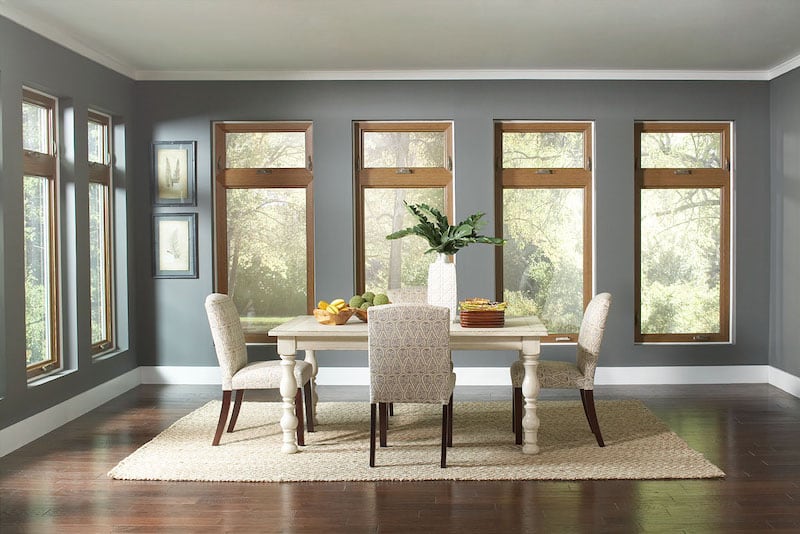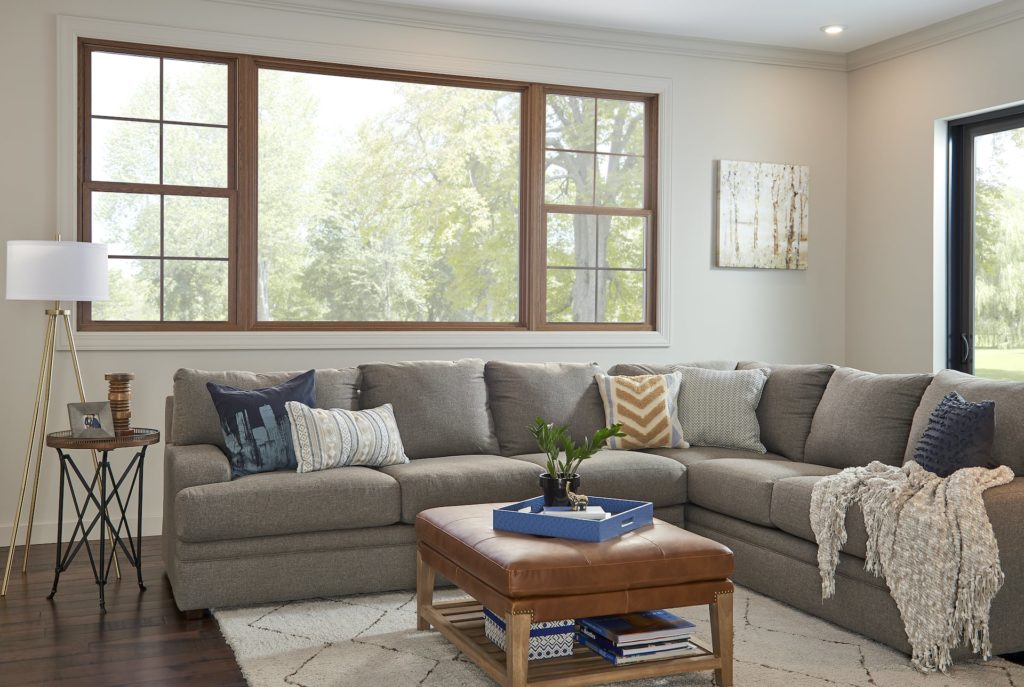Fostering peace and tranquility around the house is easier than you may think. With the principles of feng shui, you can balance the energies—or chi—in your home for a functional, harmonious space. Windows in particular play an important role in feng shui. They’re seen as the eyes of the home, and with that comes expectations and rules around how to furnish your space accordingly. Explore a few things homeowners need to know about feng shui window rules to create a truly balanced home.
What Does Feng Shui Say About Windows?
In feng shui, windows are a connection between the internal and the external. This applies on a literal and metaphorical level. They form a bridge between the crowded external world and your serene private life, allowing fresh air in and sending bad energy out.
According to feng shui, your windows’ location and relationship with your decor has a powerful effect on your mood and overall well-being. Regardless of your belief in feng shui, there’s no harm in creating a living area that prioritizes light, space and fresh air for comfort.

Key Rules for Feng Shui Window Placement
Achieve a balanced look and feel in your home by incorporating these feng shui design options around your windows.
Avoid Placing Your Bed Under a Window
Where you place your bed can impact your sleep quality, having broad implications for your daily life. Feng shui asserts that your window is not as secure a boundary as a solid wall. Putting your bed directly underneath a window may make you feel vulnerable as you sleep, disrupting your rest and leading to a rougher start in the morning.
If you do decide to place your bed under a window, there are ways to incorporate balance. Use a large, solidly-built headboard and install heavy, layered curtains to add a sense of security and protection. You could also place curtains only on the lower half of the window, leaving the upper part open to light. That allows for a practical balance between security and light.
Don’t Block Windows With Furniture
Flow is a core component in feng shui. Creating clear, unobstructed sight lines for visual and mental rest allows for a soothing home. Placing large items like sofas, bookshelves or desks against windows blocks the flow of positive chi and obscures your view of the outdoors. Arrange furniture for a clear view and easy access to your windows.
The Relationship Between Doors and Windows
Windows and doors connect you to the outside—and counteract each other in certain positions. According to feng shui, when a window is positioned directly across from your front door, the energy entering the door can rush back out through the window rather than circulating slowly through your space.
If you have the room, you can also arrange furniture between the door and window to disrupt the negative flow. To slow down energy and cultivate a settled atmosphere, place a vibrant plant, a hanging mobile or crystals between your door and window.
Cleanliness and Maintenance Are Crucial
A clean, well-kept space is essential for a positive mentality, which is what feng shui aims to achieve. Maintaining your windows, as the eyes of the home, with sparkling-clean glass and dust-free sills will boost your ability to absorb sunlight and fresh air.
Noticing any cracked seals or distorted glass as you’re cleaning? It’s time to look into new vinyl replacement windows for a better outlook for your home and your state of mind.

How Many Windows Are Too Many?
You might think feng shui would encourage you to have as many windows as possible, but there can be too much of a good thing. While feng shui does suggest having a good amount of windows to allow air and bright sunshine into your home, you shouldn’t have so many that it feels more like a fishbowl than the place you go to feel relaxed and secure.
If you’re craving more privacy, especially at night, add blinds, shades or curtains (or a mix of the three) to control your ideal amount of privacy and light.
How Your Windows Should Open
While you may not pay much notice to the direction your windows open, it may be worth a second look. Windows that open outward, according to feng shui, are often considered best since energy can flow freely in and out. Consider how a few different window styles open:
- Casement windows: These are likely your best-in-class pick for feng shui, since they open easily and outward with a crank mechanism.
- Double-hung windows: These windows open upward and tilt out for easy cleaning of both panes.
- Sliding windows: Sliding open horizontally, these windows add a modern look to your home.
It’s worth noting that no window style is bad or detracts from your home’s feng shui principles. If you favor a style that does not open outward, choose those windows! Feng shui is ultimately about encouraging your best positive outlook, and windows that you love will help you do that.
Enhance Your Home With Window World
Windows are an important part of a harmonious, balanced home—in terms of feng shui and for more general design philosophy. If your windows are hard to open and showing signs of their age, it’s time to upgrade to windows built to last, with a lifetime warranty you can rely on. Get in touch with us today for your free in-home estimate!